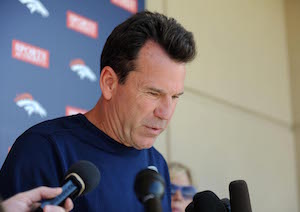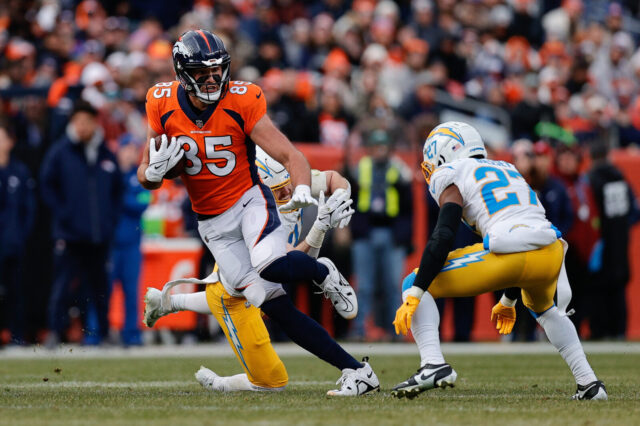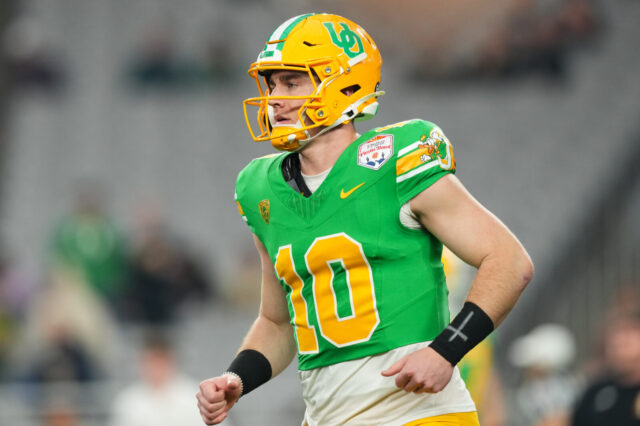Veteran players getting a day off so that some younger players get a chance to practice with the first team? What a novel concept!
“I absolutely love it,” Denver Broncos backup quarterback Brock Osweiler told the media on Monday. “I’m getting more reps than I’ve ever gotten as a Bronco.”
Wow, really? Can that possibly be true?
Osweiler is entering his third year behind Peyton Manning on the depth chart. He was the Broncos’ second round selection in the 2012 draft and since that time has been widely considered to be John Elway’s hand-picked heir-apparent to the future Hall of Famer. And yet after just a few weeks of practice under new head coach Gary Kubiak, he’s ready to declare that he’s never had more reps than right now?
That would seem to be startling treatment by the previous regime on a player deemed valuable enough to use such a high draft pick on, and therefore valuable enough to invest a not insignificant amount of money (not to mention credibility) into.
Certainly when the regular season rolls around you’d expect Manning to get virtually all of the snaps, but at this stage of the game? If Osweiler wasn’t previously getting snaps at this time of year, when on earth was he going to get them?
But this is just one of the changes down at Dove Valley this offseason that just make too much sense to understand why they are new to Denver.
Recently, Kubiak explained that the team’s quarterbacks are going under center “about 90-percent right now” in order to get used to the change in game planning. As the coach astutely pointed out, they’re so used to shotgun snaps that it won’t be a big deal to not practice them for a while.
A few weeks ago, several players noted that the pace in practice was much higher and that everyone was always moving. All noted that it was a stark contrast to a season ago and all were genuinely happy about the change. Hard to blame them when the team’s “fire” was called into question several times last season; most notably after losing to the St. Louis Rams for their second loss in three weeks. Manning dismissed the idea at the time, but no one could deny that the team changed following that contest.
The point is, the changes are so basic and beneficial that in retrospect, it’s head-scratching that John Fox either didn’t think to, or refused to enact some of these processes.
A policy with young players of “get up to speed or get out” may seem like the right way to go in the uber-macho NFL world, until you realize that while that policy may get you every player’s best shot, it’s very unlikely to help you develop a high-caliber contributor. Coaching up younger players and expecting some professionalism out of your veterans would logically seem to be your best bet to net the highest number of NFL contributors.
Similarly, high-paced practices in a league of ever-shrinking organized team time would seem to be a no-brainer.
Why John Fox wasn’t interested in such methods? Only he can say for sure.
At the end of the day, to believe that the Denver Broncos will be better this season than last is to believe in Gary Kubiak. The roster is not better on paper, and Peyton Manning is another year older. If the team is to have similar or better success than a season ago, the offensive and defensive game plans they execute will have to be designed and orchestrated by markedly better coordinators than Denver had at the helm last season.
So far, Kubiak and his staff look up to the task.



